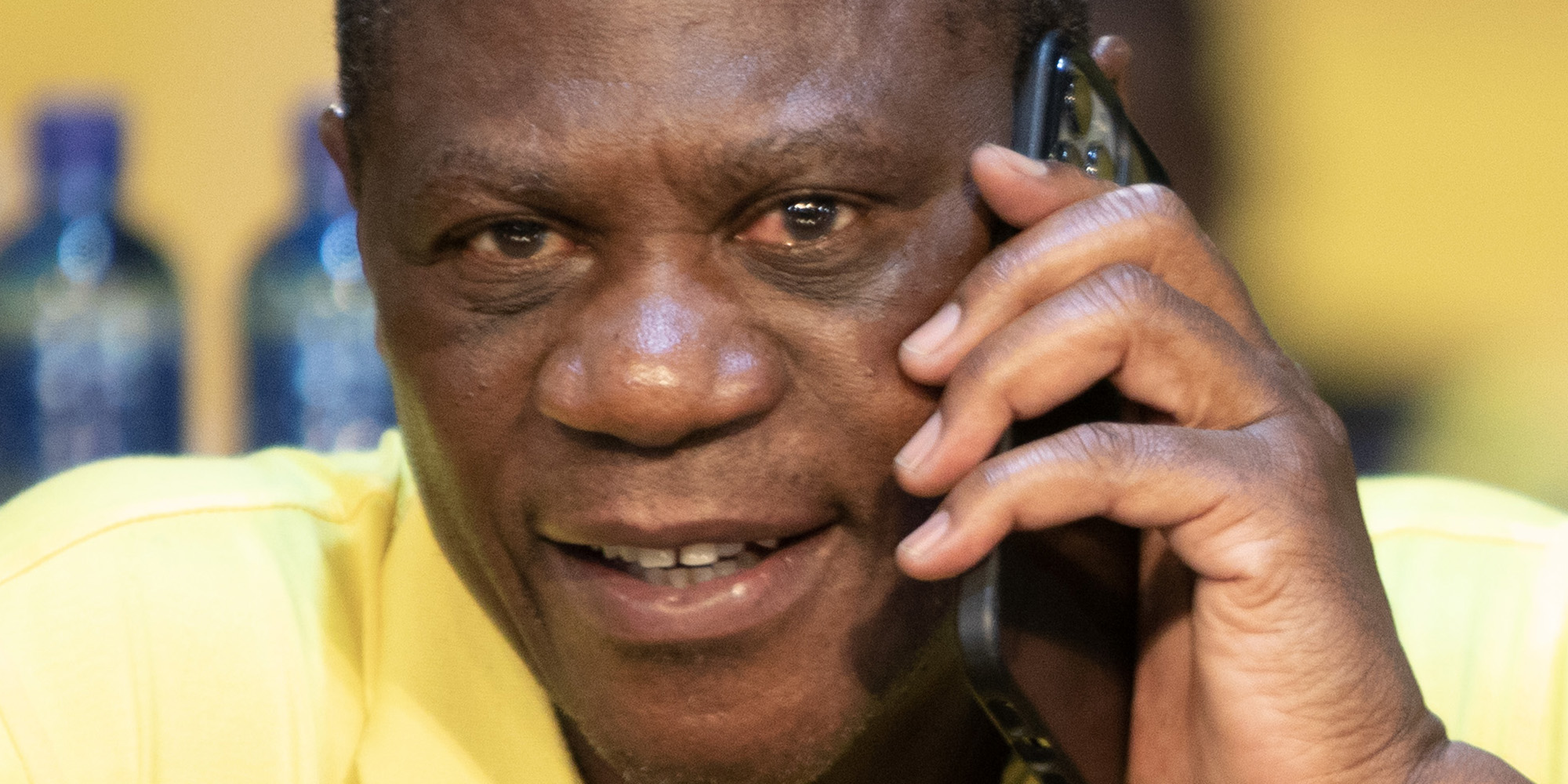He made the remarks at the launch of principles and guidelines for the use of digital and social media in African elections, held in Illovo, Johannesburg, on Tuesday.
The adoption of the guidelines signalled a new era for election management bodies (EBMs) in the quest to reap the benefits of digital and social media while also finding ways to mitigate harms that could jeopardise the credibility of electoral processes, according to Mashatile.
“The principles and guidelines are a comprehensive framework for the EMBs and electoral stakeholders on how best to interface with digital and social media before, during and after elections,” he said.
“Therefore, the development of these principles and guidelines on social media, spearheaded by the Electoral Commission of South Africa on behalf of AAEA [the Association of African Electoral Authorities], is groundbreaking on the African continent.”
The political environment during elections is often volatile, with social media sometimes used as a tool to spread disinformation, Mashatile said the guidelines ought to be adopted to achieve the following:
- To enhance existing continental and regional normative frameworks governing the conduct of elections by specifically incorporating issues of digital and social media in elections;
- To create awareness among EMBs and other stakeholders on the benefits and threats of digital and social media to the electoral process and integrity; and
- To foster policy development on digital and social media in elections by EMBs, regional economic communities and member states.
“In the fast-paced digital world of today, we must recognise the important role that social media plays in shaping people’s opinions and establishing the narratives propelled during elections,” Mashatile said.
“As we witness the increasing use of these platforms in political campaigns, it is imperative that we establish clear principles and guidelines to ensure a fair, transparent and inclusive electoral process.”
The launch adds to the IEC’s Electoral Code of Conduct which aims to promote conditions that are conducive to free and fair elections and that create a climate of tolerance, free political campaigning and open public debate.
Acts prohibited by the Electoral Act include: Using language which provokes violence; intimidation of candidates or voters; publishing false information about other candidates or parties; plagiarising any other party’s symbols, name or acronyms; and destroying, removing or defacing posters of other parties.
If a political party or independent candidate breaks the code of conduct, they can be fined up to R200,000, ordered to give up their election deposit, stopped from working in an area, have their votes in an area cancelled or have their party registration cancelled.
Any person who breaches the code can also be sentenced to up to 10 years imprisonment.
Daily Maverick has reported that in the build-up to the final registration weekend, former president Jacob Zuma’s uMkhonto Wesizwe (MK) party made headlines after a religious leader and alleged MK party leader openly threatened the IEC at a rally in KwaZulu-Natal.
Read more in Daily Maverick: 2024 elections
TimesLIVE reported that the pastor, Vader Maluleke, took to the stage and vowed to “shut South Africa down for good” and reject the election results if the IEC did not give Zuma’s new party a two-thirds majority.
The Patriotic Alliance (PA) also came under fire from the DA for alleged incidents of intimidation during the final voter registration weekend.
The IEC, however, could not charge the MK Party or any other political party for similar offences because President Cyril Ramaphosa had not yet declared an election date.
Operation Dudula, which is set to contest the elections for the first time, has also come under scrutiny as a result of its conduct.
Read more in Daily Maverick: Elections 2024 Explainer: How the IEC will tackle disinformation, errant parties
Daily Maverick reported that since its inception as an organisation in 2012, Operation Dudula has embarked on a crusade to remove foreigners from schools in Diepsloot; unlawfully evict residents from an allegedly illegally occupied building in Jeppe, Johannesburg; harassed workers and patients believed to be foreigners at a hospital in Tshwane; and clashed with police while targeting foreign traders in Hillbrow and Orange Grove.
Mashatile cautioned against similar incidents which take place in digital spaces.
“I urge political parties that participate in robust debate on social media to uphold ethical standards and refrain from going too far in being unjust, deceptive or hateful. We can run campaigns on social media without being malicious or degrading of both individuals and organisations.
“We should, therefore, use these principles and guidelines to emphasise the importance of promoting online integrity, safeguarding against misinformation and disinformation, protecting privacy and data security, and fostering a level playing field for all candidates and political parties.”
Chief electoral officer Sy Mamabolo said the guidelines came at a critical time.
“As elections management bodies we have to take advantage of the positive aspects of social media and ensure that we embrace them for voter education, we embrace them for engaging with the general voting public, but also deal with the negative effects. Unfortunately, when you deal with digital and social media there are negative uses which, if not addressed, can impair the credibility of the elections,” he said.
Adherence to the principles and guidelines would safeguard the values of democracy through free and fair elections and allow voters to make informed choices.
He added that it was critical to use social media platforms in a constructive manner to inform and disseminate accurate information about elections, as platforms such as X, Instagram, Facebook, TikTok and others had become popular, particularly among young people. DM





